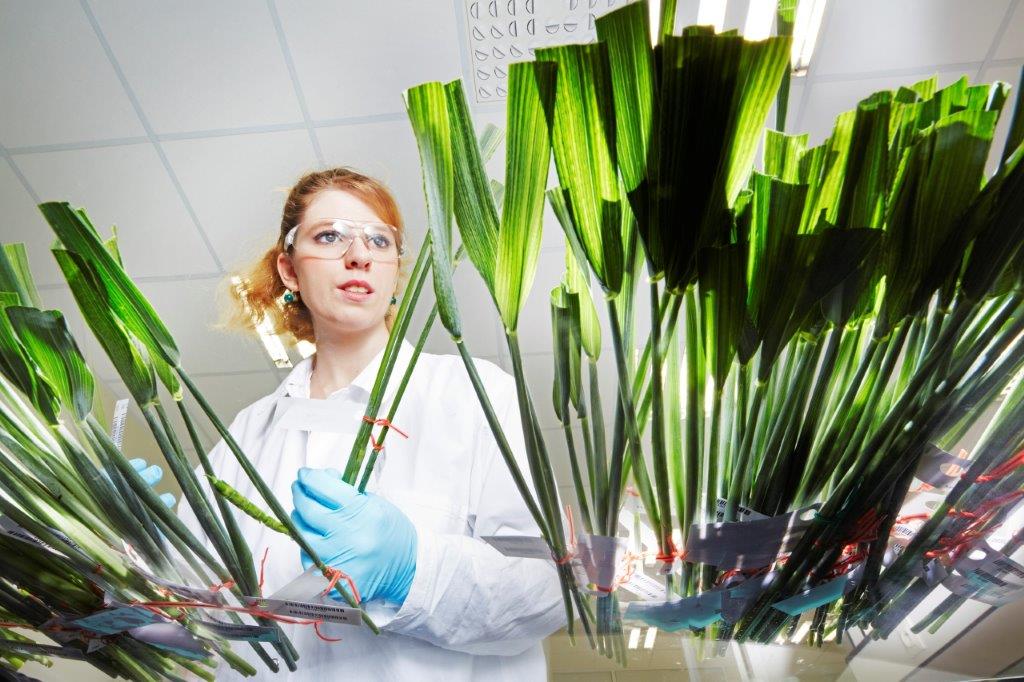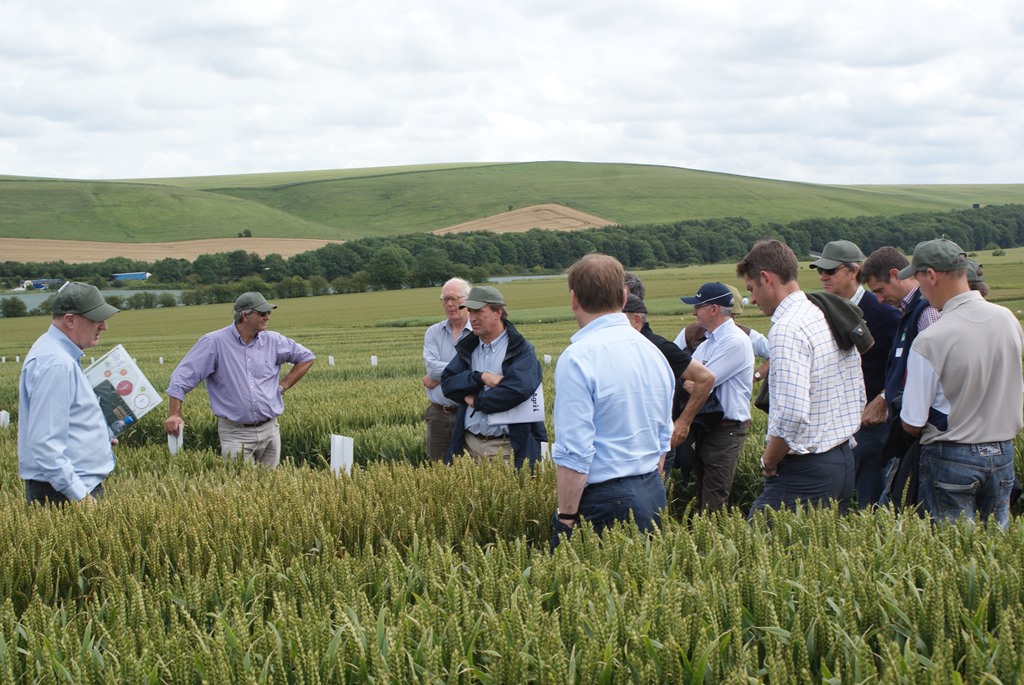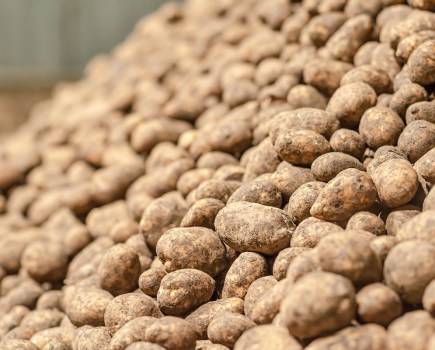Following the ruling by an EU court to classify gene-edited crops as GMOs, CPM discovers that a little persuasion may open up a world of opportunity for UK growers.
Having proportionate and science-driven regulation could make the UK an even more attractive place for such research in plant science in future.
By Tom Allen-Stevens
The ruling on gene-edited (GE) crops by the Court of Justice of the European Union (CJEU), classifying them as GMOs, leaves their research, field trials and cultivation hanging in the balance, say leading UK scientists.
But much depends on how the UK Government chooses to interpret the ruling, CPM has discovered. If allowed to continue free of GMO restrictions, the most recent gene-editing (GE) advances could pave the way to a new era of high-yielding, low-input wheat varieties, with improved resilience to drought and flooding, developed through UK farmers working closely with pre-breeding researchers.
So just what does the ruling mean for GE crops in the UK? CPM has carried out a full investigation, including a visit to the controversial trial site at Rothamsted, Herts, and to John Innes Centre in Norwich, which has been leading research work in gene-edited wheat. Here, and at commercial UK breeding stations, there are many new lines of wheat under glass that now need to be tested in the field.
“It’s a really shocking ruling that throws a huge spanner in the works,” says Prof Cristobal Uauy at JIC. “We’ve spent 15 years and many millions in public funding to get to this stage. Realistically, under GMO restrictions we can’t apply this technology in the field.”
While the public-funded work in this area hangs in the balance, the picture’s even worse for EU-directed innovations in seeds and traits from global ag-chem manufacturers. During the 1980s, a third of investment in innovations in agriculture by R&D companies was specifically targeted at the EU farmer, according to Bayer. Today, this figure stands at just 8% and it continues to shrink.

The ruling is a massive disincentive for companies like Bayer to invest in Europe.
“There are so many problems created by the CJEU ruling, it’s untrue,” says Bayer’s Julian Little. “This is a massive disincentive for companies like Bayer to invest in Europe.”
Although the company has just divested most of its portfolio in seeds and traits as part of the anti-trust deal in its purchase of Monsanto, the ruling affects products and new technologies across the board, he notes.
“So much of our R&D work now revolves around how genes are upregulated or downregulated, and how we can use this information to enhance plant performance or control weeds, pests and diseases. This relies on being able to work in plant biotech.
“But to invest requires predictability. The EU is turning into Museum Agriculture – it’s an unfathomable system – and that doesn’t give us the confidence to invest.”
BASF has just bought the bulk of Bayer’s seeds and traits portfolio, which includes the InVigor oilseeds brand and its nascent hybrid wheat programme. The company has yet to decide where it will be investing its expanded R&D budget, Markus Heldt, president of BASF Agricultural Solutions told CPM, but the EU has taken a step back with the CJEU ruling.
“We’re really disappointed and concerned. We believe in innovation and also believe that gene-editing offers a wider, safer technology that will be needed for these innovations. Every other country around the world is coming to the conclusion that it is not GM. Our real concern is that EU farmers will lose out and will be unable to compete in a global marketplace.”
Mark Buckingham of the Agricultural Biotechnology Council believes the level of uncertainty that’s causing global companies to switch funding away from the EU comes as a direct result of the EC’s “unscientific” approach to biotech. “The most disappointing element of this judgement is that it doesn’t reflect the current state of knowledge. There is much more scientific confidence in new methods of mutagenesis than in the old techniques. So the ruling is clearly disproportionate to the risk.”
Scientific approach
But the UK has always taken a far more scientific approach, he points out. So could there be an opportunity with Brexit to take a different interpretation of the regulations? “The original legislation on GM crops is sensible. It’s the way it’s been interpreted at an EU level that has caused the problems. Member states have been voting against scientific opinion put forward by the European Food Standards Agency, which means regulatory outcomes depart from a science-based approach.
“There’s a clear opportunity for the UK to regulate in line with the science. This wouldn’t reduce the protection in terms of safeguarding health and the environment. Importantly, it would also stay within EU regulations, so shouldn’t compromise trade agreements,” Mark suggests.
NFU combinable crops chairman Tom Bradshaw shares the sentiment with which the CJEU has been received. “The opportunities that could be offered by adopting the NBT’s go far beyond increased yields – they have the potential to improve the nutritional value and reduce our environmental impact. This is such a disappointing ruling and could put us back in the Dark Ages. We’re already losing active ingredients, and if we maintain the status quo, we will go backwards,” he says.

Direct involvement with farmers will help guide research.
“Farmers are tasked with more sustainable production, and this technology is so important to take things forward. We know the UK Government is very supportive of GE, but future trading arrangements may determine exactly what opportunities lie ahead.
“We have to push for full adoption across the whole of the UK for those GE lines that will be treated as no different to conventional varieties. We face a very real threat that the R&D spend will be directed away from the UK and EU and that we will lose our scientific base unless the government comes out in full support of NBTs. We will then lose the world-leading scientists we currently have working in this area and the opportunity for farmers to work with these scientists to develop the next generation of wheats.”
Cristobal agrees. “At the moment there’s such a long chain between the pre-breeder and the farmer – it takes ten years to develop a new variety. That’s what’s so exciting about gene-editing – it cuts down the development time considerably, and there’s a real active role within it for proper field-scale evaluations. Direct involvement with farmers will help guide our research.”
Mark believes there’s an opportunity for the UK to become a life-sciences R&D hub post Brexit. “This can generate solutions and knowledge for the world, not just the UK. Having proportionate and science-driven regulation could make the UK an even more attractive place for such research in plant science in future. It also has the potential to create spin-off benefits for UK farmers, due to better understanding and support for the best science, even if research is focused on global needs.”
Julian can see a major opportunity post-Brexit in bringing innovations to the UK first. “The CRD is so efficient I can see a lot of the delay we experience with EU approvals would be cut considerably. Post-Brexit there are huge global opportunities with GE lines – elsewhere in the world they aren’t even being regulated, but there’s widescale adoption. Which way does the UK want to go – Museum Agriculture or World of Opportunity?”




